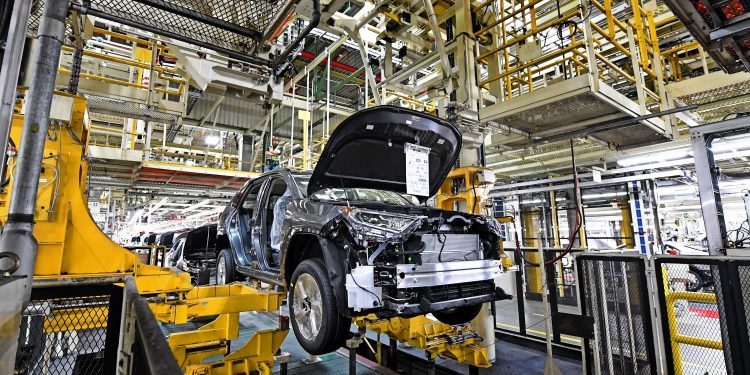Toyota, Hyundai see light at the end of semiconductor shortage tunnel
Words: Matthew Hansen
Two of the world’s biggest car manufacturers believe that the semiconductor shortage issues that have plagued the car industry over the last few years could soon come to a close.
Spurred on by Covid-19 restrictions, production stoppages, and choking points in global supply, the chip shortage has resulted in brands halting production of certain models, or releasing models with semiconductor-reliant tech features removed in order to maintain deliveries.
Japanese outlet Nikkei has outlined that Toyota expects a “strong recovery” this year, having reported that it expects to produce about 11 million vehicles this year. If that figure comes to fruition, it will be the marque’s biggest year of production in history.
Most of those extra cars will come from the brand’s Japanese plants, with output on its domestic soil projected at 25 per cent higher than those outlined in its 2021 fiscal plan. These outlines assume a continuous supply of chips and stabilisation of the pandemic.
The other brand optimistic about their semiconductor trajectory is Hyundai.
In a recent conference call, Hyundai executive vice president Seo Gang Hyun said that while he expected the shortage to continue in Q1 due to the emergence of the Omicron variant, a rebound is expected to kick off in Q2.
“The normalization of auto chip supply and demand is expected in the third quarter, when the capacity of semiconductor companies is expected to rise,” he said.
The positive sentiment from Toyota and Hyundai complements earlier optimism from Nissan. Back in November of last year, Nissan Australia boss Adam Paterson also targeted mid-2022 as a likely end to the semiconductor crisis.
“We believe that our Nissan supply will be much stronger in calendar Q1 of next year. The expectation is that we will be somewhat back to normality at that point,” he told Australian outlet Drive.
“Things may change, but […] from an on-the-ground supply standpoint, we expect at this point that things would be back to a regular supply situation by the middle of next year.”





